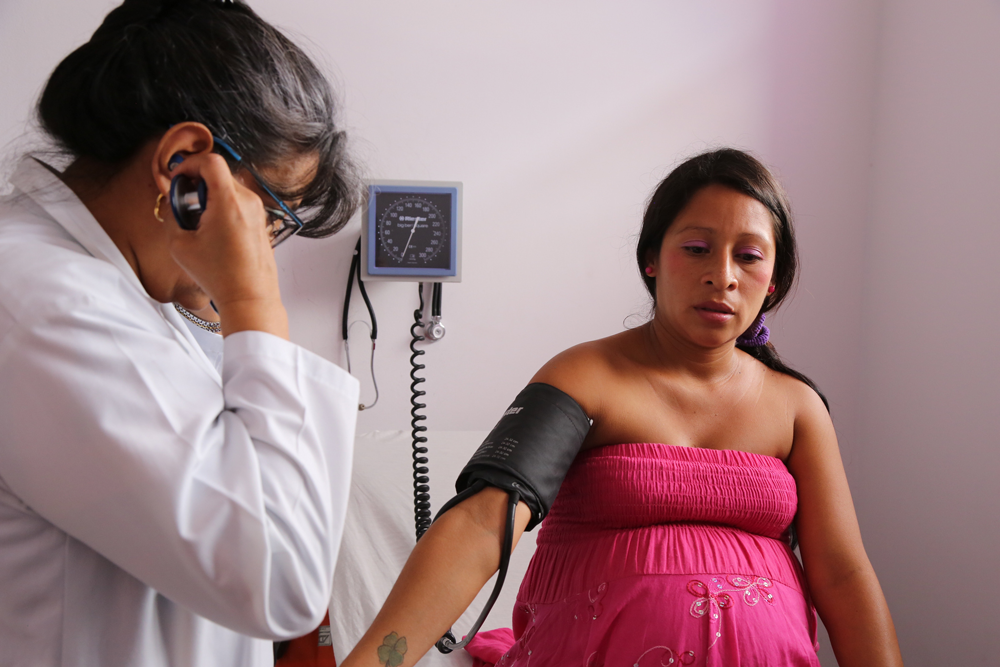

Health systems across the world are facing shocks and stresses brought about by infectious disease outbreaks such as Zika and Ebola, the growing burden of long-term chronic conditions such as diabetes and heart disease, and longer lifespans, which will test the resources and capacity of health systems to provide care and improve health.
Representatives of the Pan American Health Organization are among more than 2,000 health practitioners, policymakers and researchers gathering in Vancouver, Canada, this week to examine the biggest challenges facing health systems, at the 4th Global Symposium on Health Systems Research.
Vancouver, Canada, 14 November 2016 (PAHO/WHO/HSG) - Health systems across the world are facing shocks and stresses brought about by infectious disease outbreaks such as Zika and Ebola, the growing burden of long-term chronic conditions such as diabetes and heart disease, and longer lifespans, which will test the resources and capacity of health systems to provide care and improve health.

To withstand these challenges and mitigate the effects of emerging and future crises, the 4th Global Symposium on Health Systems Research (Nov. 14-18) is calling for global leaders to learn the urgent lessons needed to build strong and resilient health systems.
"Right now, we are at a key juncture," said Sara Bennett, Chair of Health Systems Global (HSG), organizer of the Symposium. "Urgent lessons must be learnt from the challenges magnified by the likes of the Zika and Ebola epidemics, the exploding problems of obesity, and the health implications of climate change. While managing these new challenges, routine health systems also need to become much more accountable and responsive to people's needs."
"From the Zika epidemic to natural disasters and climate change, we in the Americas have seen time and again the consequences that fragile health systems can have for local, national, and international health," said Carissa F. Etienne, Director of the Pan American Health Organization (PAHO), which is cosponsoring the Symposium. "We cannot have health security without resilient health systems, and investing in them must be a national, regional and global priority."
Karina Gould, Parliamentary Secretary, Global Affairs Canada, said, "Canada is committed to working with its partners to strengthen health systems, particularly for the poorest and most vulnerable, including women, adolescents and children. Reducing inequalities in access to health services and resources is an important component of health system strengthening than can reduce the burden of outbreaks and health emergencies."
PAHO Director Etienne will be among the Symposium's keynote speakers and will address participants on "Resilient and Responsive Health Systems: Learning from frontline experiences" on Wednesday, Nov. 16, at 8:30 a.m.
Other keynote speakers from around the world will share lessons and promote action on strengthening health systems, including:
Alain Beaudet - President, Canadian Institutes of Health Research (CIHR)
Nila Heredia Miranda, Executive Director, Andean Health Organization
Soonman Kwon, Chief of Health Sector Group, Asia Development Bank
Saira Shameem, Head, United Nations Population Fund
Dr Agnés Soucat, Director for Health Systems, Governance and Financing, World Health Organization
For further information on the Symposium or to request an interview with the named spokespeople, please contact Vivienne Benson on v.benson@ids.ac.uk; +44 778 901-3453; +1 604 347-1553 (from 10 November) or Marg Buchanan on buchanan.marg@gmail.com; +1 514 627-3932
Notes to Editors
Health Systems Global organizes a symposium every two years to bring together its members with the broad range of players involved in health systems and policy research. The focus of the Fourth Global Symposium on Health Systems Research (HSR2016) in Vancouver between 14-18 November is on building resilient and responsive health systems. It will host over 2,000 leading global health thinkers and practitioners on health systems.
A health system is the people, institutions and resources, arranged together in accordance with established policies, to improve the health of a population.
A resilient health system is one that is able to prepare and respond to health-related crises by maintaining core functions and reorganising if required.
A responsive health system meets a population's needs and expectations of how it should be treated, including respecting people's dignity, autonomy and confidentiality; and anticipates and corresponds with people's changing needs, which are shaped by social, economic, ecological and epidemiological changes.
Many non-communicable diseases (NCDs), such as heart disease, cancer, diabetes, and lung disease are preventable yet claim health and lives prematurely. The global burden of these diseases are expected to increase by 17% by 2025 (NCD Alliance, 2014).
The Symposium is sponsored by Health Systems Global, World Health Organization, Pan American Health Organization, Alliance for Health Policy and Systems Research, Canadian Society for International Health, International Development Research Centre and The Canadian Institutes of Health Research.



